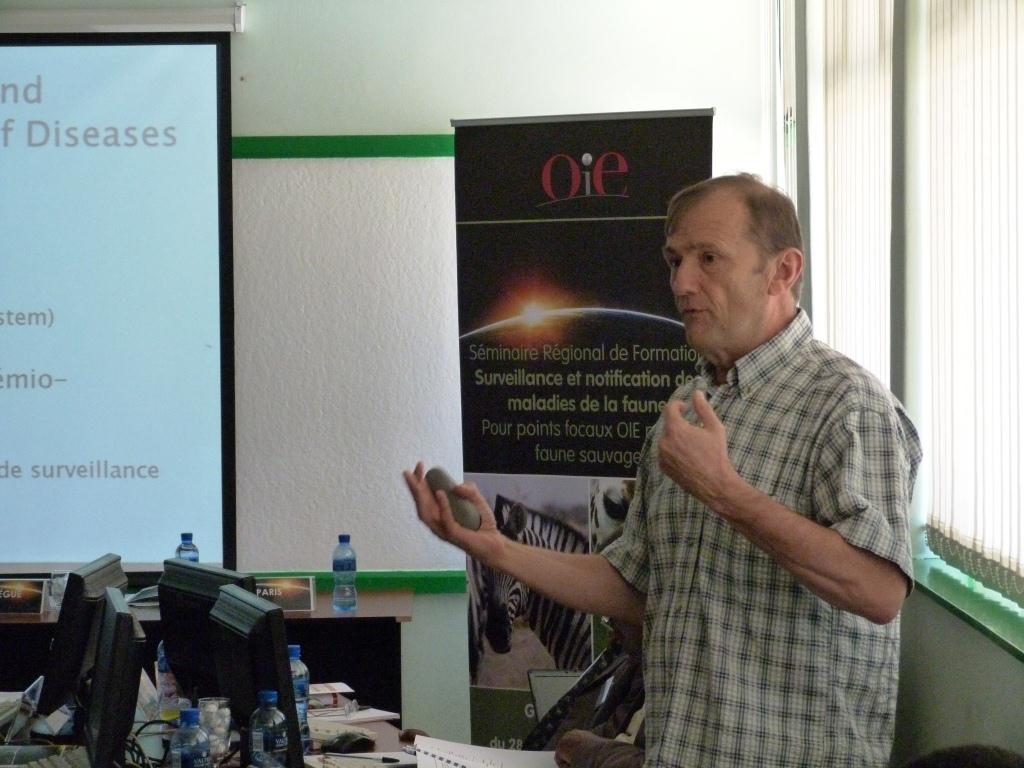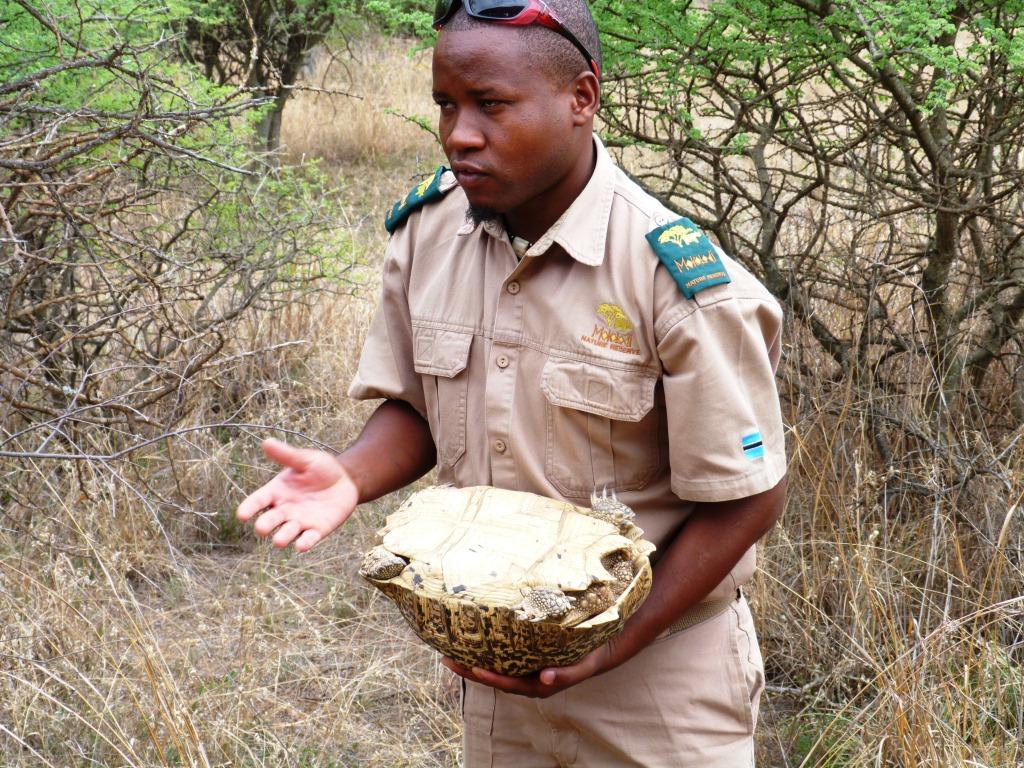
The second training workshop for the OIE national Focal Points for wildlife was held in Gaborone, Botswana, from 28 November to 1 December 2011 in the buildings of the Regional Animal Health Centre.
The workshop was opened by Dr. Kgoseitsile Phillemon-Motsu, Director of the Botswana Veterinary Services and OIE Delegate. In the framework of the OIE support to Member States as regards wildlife, a first training seminar had taken place in Arusha, Tanzania, from the 16 – 19 March 2010.
Game ranger at Mokolodi Nature Reserve. Picture © A. Maillard (oie) 2011
This second workshop was organized jointly with OIE and the Canadian Co-operative Wildlife Health Centre (CCWHC), one of three OIE Collaborating Centers dealing with wild animals. Only African french-speaking participants attended this workshop and came from Benin, Burkina Faso, Burundi, Cameroun, Central African Republic, Chad, Comoros, Congo (Dem. Rep.), Congo (Rep.), Equatorial Guinea, Morocco, Niger, Sao Tome and Principe, Senegal, Seychelles and Togo.The training aimed at improving the reporting of wildlife diseases to the OIE, as required in the Terrestrial and Aquatic Animal Health Codes, so as to fulfil one of the objectives of the Organisation : to ensure transparency in the global animal disease situation, including zoonoses. To this end, the agenda of the workshop was organised as follows :
A field visit was organised to the Mokolodi Nature Reserve, a few kilometres from the capital, which ended with the traditional “bush braai”
The assessment of the seminar by the participants indicates that the OIE support to national experts is regarded as both important and useful. The excellent organization and the welcome extended to the participants while in Botswana, made for a pleasant stay and enabled participants to be fully focused and committed to the seminar. Finally, the active participation and interactions between participants was particularly appreciated by the organizers and speakers at the seminars (Collaborating Centre and other experts) .


